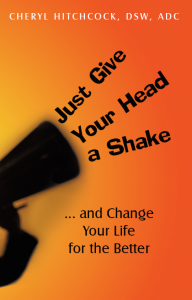 Human beings are beings of will; that is, their actions are willful, and they are responsible for those actions – always.
Human beings are beings of will; that is, their actions are willful, and they are responsible for those actions – always.
The Law of Volition states that your actions belong only to you, and the choices you make, the choice to act or not to act; the choice to do good, or not to do good; the choice to forgive, or not to forgive; the choice to be generous, or to be stingy; the choice to love, or not to love. Just as your choices belong to you and you alone, so do your actions belong to you and you alone.
Willful action is the exclusive purview of the conscious mind. There can be no such thing as arbitrary action where will, or volition, is involved. Arbitrary action from a willful mind is a contradiction in terms. It cannot exist. Therefore, you are responsible for all actions you take in your life, whatever the motivation.
For example, we regularly hear stories on the news of an “arbitrary act of violence” committed by someone. This is senseless – and meaningless. While the act may be random, where there is a will involved there can be no arbitrary act and, if we allow this contradiction to exist, we absolve the actor of responsibility. This can only lead to chaos and confusion.
The Law of Volition and Responsibility
Since human beings are willful actors, they are, and must be held responsible for, all of their actions. While there may be mitigating circumstances, at times, the man who beats his wife is responsible for his actions. For whatever reason, he chose to act violently and must take responsibility, and suffer the consequences, for his actions. For the woman who grew up the child of alcoholic parents, her choice to drink and drive as an adult is a willful act on her part, and she is responsible for that choice.
The choice to live a life of forgiveness and understanding does not mean you should absolve others of responsibility for the choices they’ve made, or the actions they’ve taken. It also does not absolve you of that responsibility. Understanding the motivation of another person is one thing, giving them a free ride to act poorly, or violently, or destructively, is not the same thing.


[…] is described as being affected by physical laws, biological laws, psychological laws, volitional laws, and universal laws.” From […]